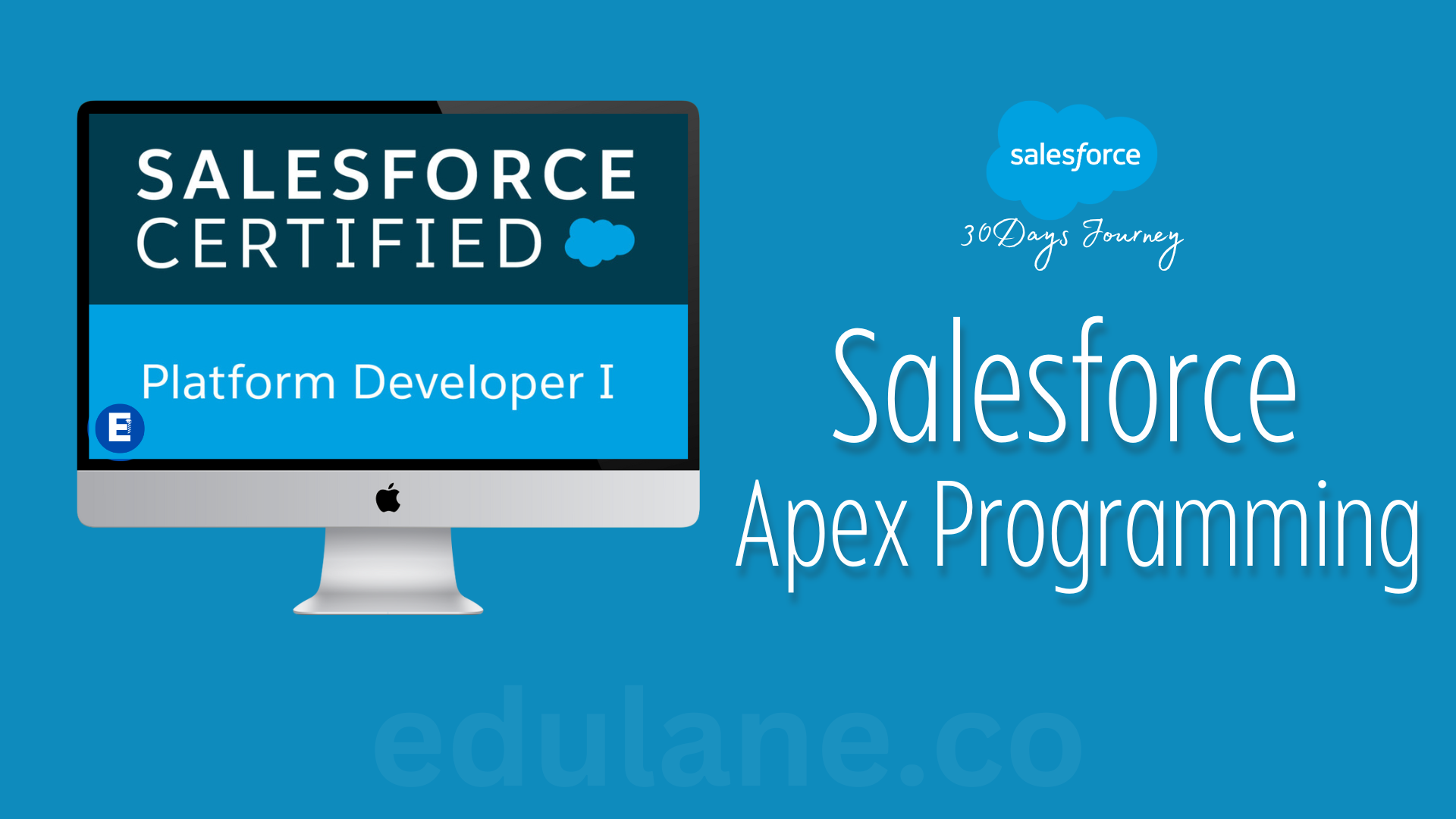Welcome to the 30-Day Apex Programming Learning Plan! This guide is designed to help you learn Apex, Salesforce's proprietary programming language, through a structured approach. By following this plan, you'll gain a solid understanding of Apex and its applications within the Salesforce platform.
- Introduction
- Week 1: Introduction and Basics
- Week 2: Intermediate Concepts
- Week 3: Advanced Concepts
- Week 4: Project and Real-world Scenarios
- Resources
Apex is a strongly-typed, object-oriented programming language that allows developers to execute flow and transaction control statements on Salesforce servers in conjunction with calls to the API. This plan is designed to take you from the basics to advanced topics, ensuring a comprehensive understanding of Apex.
- Overview of Salesforce platform
- Understanding the role of Apex
- Setting up Salesforce Developer Environment
- First Apex class and execution
- Basic syntax rules
- Primitive data types (Integer, Boolean, String, etc.)
- Variables and constants
- If-else statements
- Switch statements
- Loops: For, While, Do-While
- Lists
- Sets
- Maps
- Defining methods
- Method overloading
- Return types
- Access modifiers
- Object-oriented programming concepts
- Creating and using classes
- Constructors and class methods
- Private, Public, Global, and Protected
- Encapsulation and best practices
- Try-catch blocks
- Custom exceptions
- Best practices for error handling
- Basic SOQL syntax
- Querying Salesforce objects
- Filtering and ordering results
- Relationship queries
- Aggregate functions
- Best practices for optimizing SOQL
- Basic SOSL syntax
- Differences between SOQL and SOSL
- When to use SOSL
- Insert, Update, Delete, and Upsert
- Handling DML exceptions
- Transaction control
- Basics of triggers
- Before and after triggers
- Use cases and best practices
- Bulk triggers
- Trigger frameworks
- Avoiding recursion and governor limits
- Understanding governor limits
- Strategies to avoid hitting limits
- Best practices
- Future methods
- Batch Apex
- Scheduled Apex
- Writing test methods
- Using test data
- Best practices for unit testing
- Understanding sharing and security
- Programmatic sharing
- Use cases and implementation
- Creating and consuming REST and SOAP web services
- Making HTTP callouts
- Handling callout responses
- Differences between custom metadata and custom settings
- Use cases and implementation
- Best practices
- Basics of Visualforce pages
- Using Apex with Visualforce controllers
- Practical examples
- Integrating Apex with external systems
- OAuth and authentication
- Use cases
- Introduction to Lightning components
- Using Apex in Lightning components
- Practical examples
- Debugging Apex code
- Using debug logs
- Monitoring performance
- Handling large data volumes in Apex
- Best practices for performance optimization
- Real-world scenarios
- Common design patterns in Apex
- Best practices for scalable and maintainable code
- Practical examples
- Defining project scope
- Gathering requirements
- Designing architecture
- Building the project based on the design
- Implementing features and functionalities
- Testing and debugging
- Conducting thorough testing
- Optimizing performance
- Final adjustments
- Reviewing the final project
- Discussing what has been learned
- Exploring advanced topics and continuous learning resources
Happy learning!
